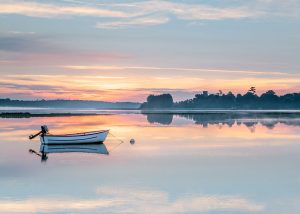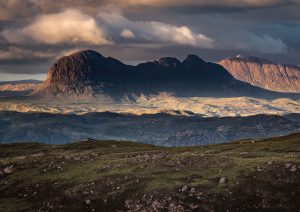How to improve your photography
This months blog has been inspired by Alister Benn, a Scottish landscape photographer and Fellow of the Royal Photographic Society, who’s work I really admire. This week he put out a post on social medial asking for comments on what made good photography and for our views on whether we considered ourselves good photographers.
I found it a really thought provoking question so I thought I would offer you my take on what makes good photography and how I feel you can improve your own.
I have been taking photos seriously for the last 15 years – 12 of which has been on a commercial basis. I don’t know whether I consider myself a good photographer but I am happy with the photographer that I have become, and I think that is the most important thing. There will always be more I can learn and photographers I admire that I feel are producing work far out of my league. But as long as I am making work I am proud of and I am continuing to grow as a photographer then I am happy.
How to make good photographs.
 I believe that good photographs need to convey your intention. Take this image of the river at Iken. I went out for a sunrise. It was a cool morning that preceded one of the hottest days of the year. The air and the water were perfectly still and my intention was to convey the beauty and the tranquility of the morning. If I have done that then my image has successfully conveyed my intent.
I believe that good photographs need to convey your intention. Take this image of the river at Iken. I went out for a sunrise. It was a cool morning that preceded one of the hottest days of the year. The air and the water were perfectly still and my intention was to convey the beauty and the tranquility of the morning. If I have done that then my image has successfully conveyed my intent.
I also believe that you need to have a connection with the landscape you are photographing. I hope that as well as beauty and tranquility this image also conveys my love of this location.
In my opinion, to be a good landscape photographer you need to perfect the following:
Good observation skills – if you can’t see it, you can’t photograph it. Practice looking for light/shade, contrasts, textures, patterns and all the little things that will ultimate make your image interesting.
Good knowledge of the landscape you are photographing. What does it look like at different times of day and in different lights. What plants exist at different times of the year, what season works best, is it a good sunrise or sunset location, what interests you about the landscape and what do you want your image to say.
You need to be passionate about the landscape you are working in as this will help you craft an emotive image. Without passion your image is in danger of being soul less.
Learn your camera controls inside out so that when you are faced with fast changing light you can react without wondering what buttons or dials to use. I think this is crucial but once you have mastered the technicals don’t get hung up on them. A technically perfect image is not necessarily a good image. If it doesn’t convey your passion and intent then it will lack emotion and impact.
 Get out a lot and practice. There is no substitute for hours spent in the field. Over the years I have found that setting myself a project or goal has really focused my mind and improved my photography. I have undertaken 2 long term projects in the last two years and one recent short term project which I undertook whist on holiday in Scotland this year. I formulated an idea for my project before travelling so that when I arrived I had a focus to my photography. This really helped. I am not usually very happy with images I take in locations outside of Suffolk but this time I found I was really inspired and focused and this was all down to having a plan and a project to work to. I have now turned the images from this project into a limited edition book – more details here >>
Get out a lot and practice. There is no substitute for hours spent in the field. Over the years I have found that setting myself a project or goal has really focused my mind and improved my photography. I have undertaken 2 long term projects in the last two years and one recent short term project which I undertook whist on holiday in Scotland this year. I formulated an idea for my project before travelling so that when I arrived I had a focus to my photography. This really helped. I am not usually very happy with images I take in locations outside of Suffolk but this time I found I was really inspired and focused and this was all down to having a plan and a project to work to. I have now turned the images from this project into a limited edition book – more details here >>
Learn from others. Although I have been working as a photographer for 15 years I still like to go on workshops, attend courses and connect with other photographers through their websites, YouTube channels or by buying their photography books. I believe an enquiring mind is a creative mind. If we stop engaging, stop asking questions, stop being inquisitive we stagnate and our photography will become stale.
Master post processing. Being out in the field is only half the story. I believe post processing is an important part of image making and it is a part many people ignore. Besides learning the technical aspects of your chosen software programme it is most important to target your processing and know what you want to do to each image. My advice would be to look at your RAW file, and ask yourself does the image say what you want it to. Will enhancing certain areas help get your message across to the viewer more effectively. For example can I dodge and burn certain areas to help guide the viewers eye to my subject?
To sum up, I believe the way to improve your photography is to:
Perfect your observation skills and make images with intent.
Develop a good knowledge of the landscape you are shooting in.
Be passionate about your photography and the landscape you want to shoot.
Learn your camera controls inside out.
Set yourself a project or a focus.
Attend workshops, walks, and other photo sessions – there is no substitute for knowledge and practice.
Learn from others, look at other photographers work. Read books and watch Youtube and absorb everything.
Master post processing.
Review your work. Be critical and learn from mistakes but also be observant and take note of what you like photographing as this will be how you develop your passion.
Stay curious, stay inspired, live in awe and get out with your camera.